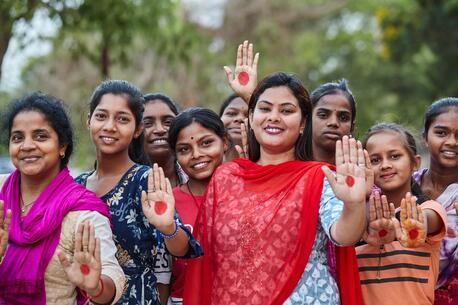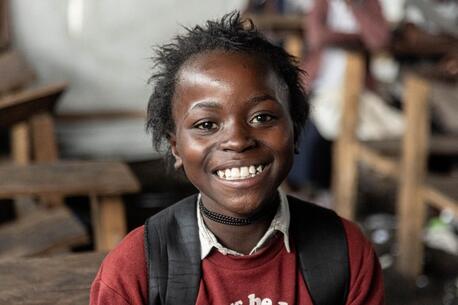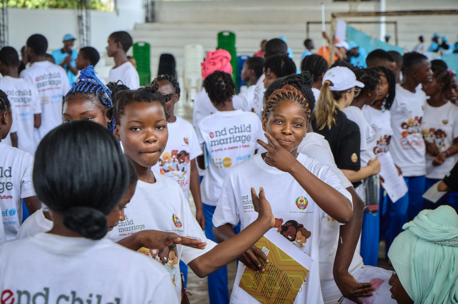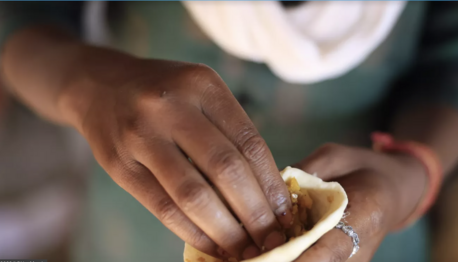
Building Brighter Futures for Girls in Nepal
Girls in Nepal like 16-year-old Antima are learning valuable life skills to chart their own course with help from the Rupantaran program created by UNICEF and UNFPA.
A life-changing program that builds confidence and gives young entrepreneurs seed money to start their own small businesses
Rautahat, Nepal: It's close to noon when the air along this scenic stretch of road in Rajdevi Municipality, Rautahat District, fills with the sound of sizzling oil. The source? A small snack shop run by 16-year-old Antima.
Antima runs her business out of a modest roadside hut, selling samosas and other varieties of fried, savory items. Her hands move deftly as she prepares the dough and fillings, her face a mask of concentration.
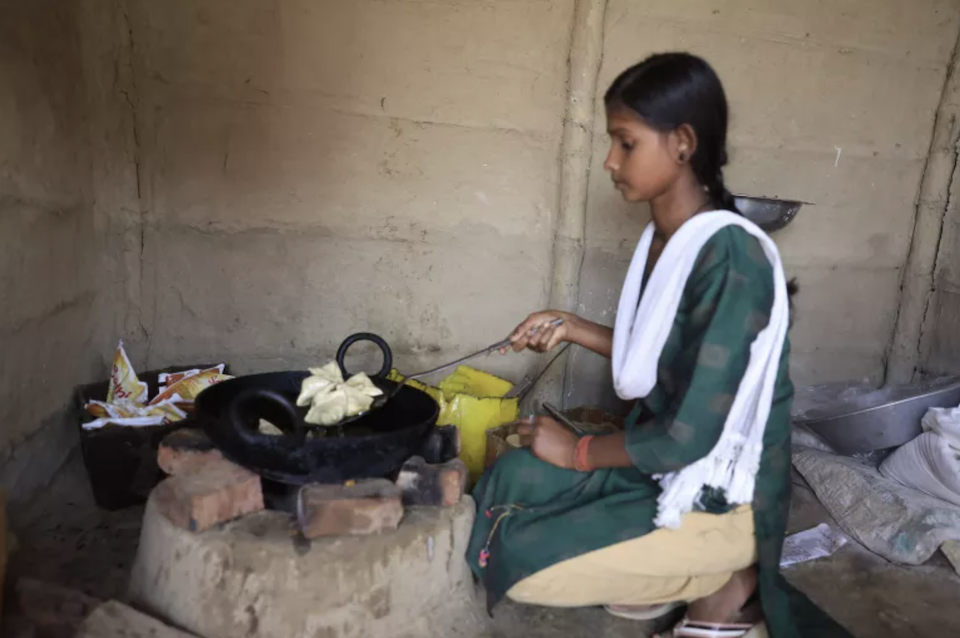
The program offers a mix of social and financial skills training including communication, negotiation, self-assessment and resource identification
Antima first had the idea for the business last year when she took part in the Rupantaran life skills program. Developed by UNICEF and the United Nations Population Fund (UNFPA) in collaboration with the Government of Nepal, and implemented with support from partners including Zonta International and David Beckham's 7 Fund for UNICEF, the Rupantaran package is aimed at providing adolescents between 10 to 19 years of age with the information and skills they need to navigate society and plan for their futures.
The package includes a mix of social and financial skills training and covers a wide range of topics such as communication, negotiation, self-assessment and resource identification for goal attainment and physical and mental well-being, all taught by locally based facilitators or peer educators over the course of 21 weeks.
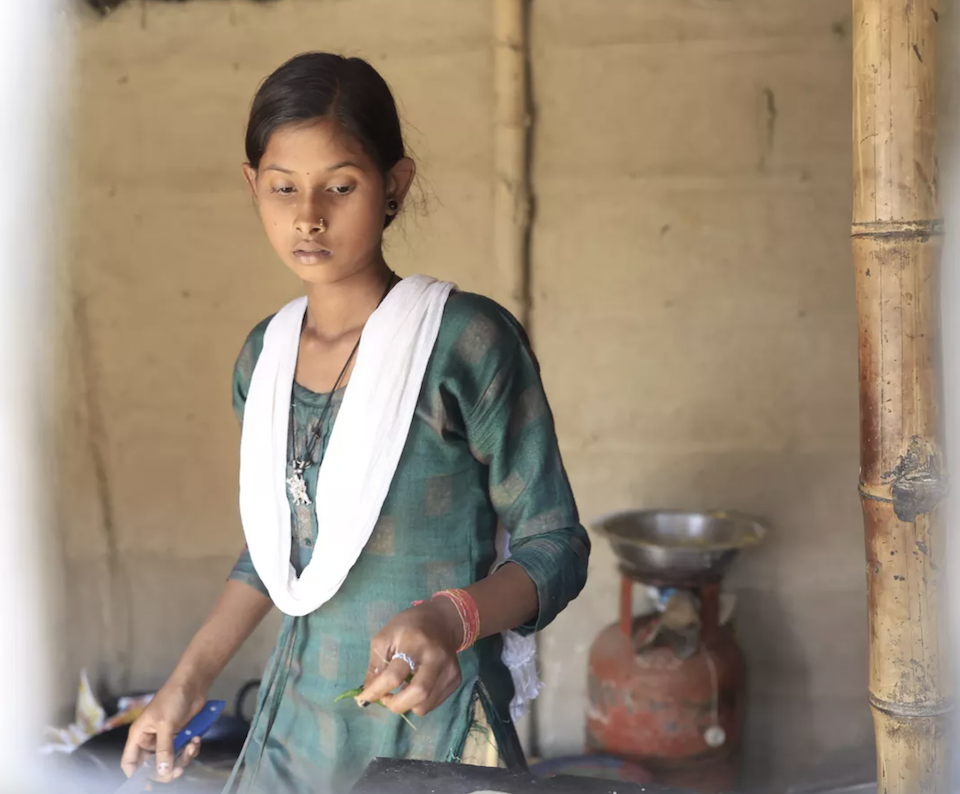
Antima, one of seven siblings, had dropped out after fifth grade because her family’s financial situation was so dire. She had been staying home, helping her parents take care of her younger siblings when she was approached by a Rupantaran facilitator with an invitation to join the sessions. Having long felt aimless, she says she was curious about what the opportunity entailed and decided to give it a shot.
That decision turned things around for her.
A dream come true
As she attended the Rupantaran sessions, Antima started to get excited about what she was learning, particularly the module on economic empowerment and entrepreneurship.
"My parents used to own a small eatery, and I had grown up watching my father make these dishes, even helped him," she says. "I felt that this was something I could do too."
And so, after completing the Rupantaran course, Antima applied for seed funding to start her business and, following an interview, was among those selected to receive a sum of NPR 10,000 (approx. USD $75). With the money in hand and the financial skills she picked up in the Rupantaran program, the snack shop was soon up and running.
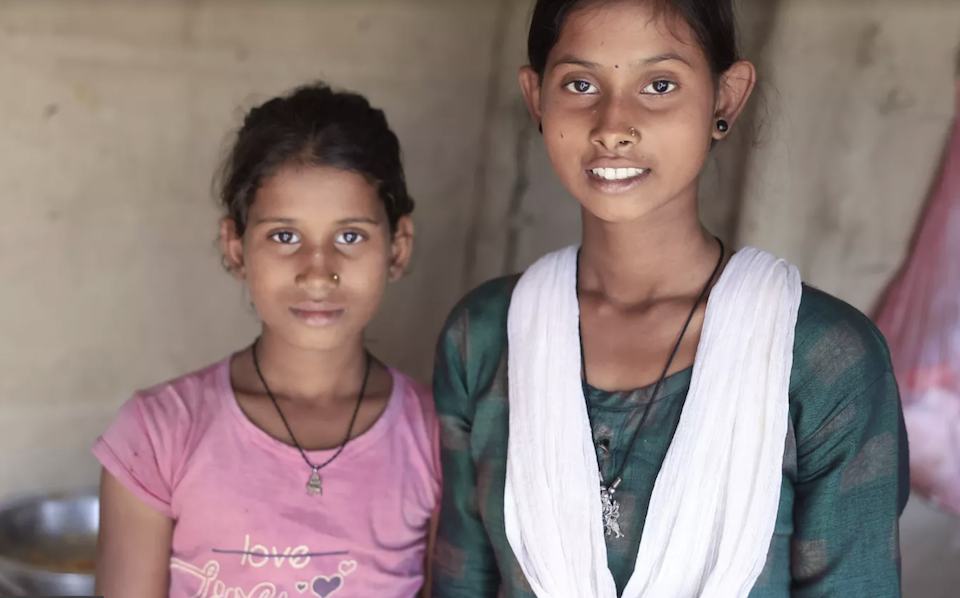
Today, Antima says she earns around NPR 700 (approx. USD $5.25) a day. While she is glad that this allows her to contribute to the family’s income, it is being able to pay for her younger siblings’ education, especially that of her little sister, that brings her the most joy.
"My parents couldn't afford to send us to school" she says. "My older sisters were already married, but my younger siblings still have a chance."
My parents couldn't afford to send us to school. My older sisters were already married, but my younger siblings still have a chance. — Antima, 16
A different future
While the Rupantaran program places a strong emphasis on education, and as a first priority, encourages participating adolescents to continue or resume formal schooling after graduating, it also recognizes that this option might not be viable for all — especially older adolescents who might struggle to transition to classrooms with much younger counterparts.
In these cases, especially when they demonstrate an interest and aptitude for entrepreneurship, the young people are guided accordingly, and provided the skills-building and mentoring support they need to establish and sustain micro-enterprises of their choice.
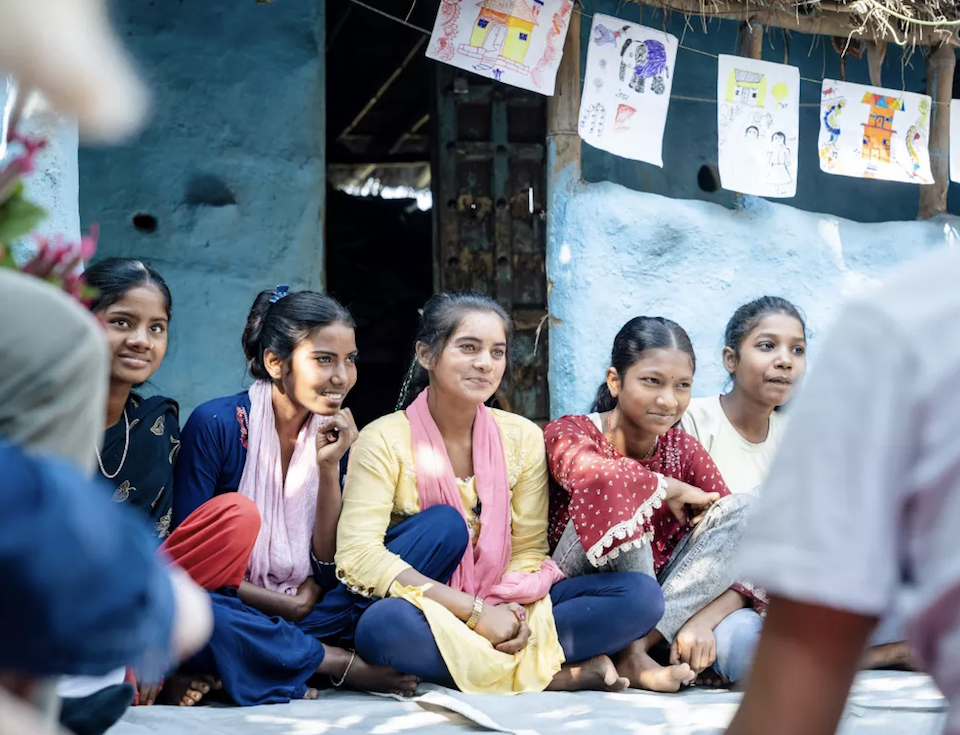
A chance to make their own choices in life
Over the past four years, more than 93,000 adolescents have been reached through the radio version of the Rupantaran program, and 8,473 adolescents have participated through school and community-based sessions.
Ruby Kumari Ram, one of the Rupantaran facilitators, says that for many of these girls who come from marginalized communities, the Rupantaran class represents the only opportunity they might have to choose a different future for themselves than the one their families or society has chosen for them. That gradual broadening of their horizons — beyond the narrow, limited prospects that they are otherwise forced to live with — that is the beauty of Rupantaran, in Ruby's opinion.
"It makes me very happy to play a part in helping them understand themselves better, set their goals and make their own choices in life," Ruby says.
Learn more about UNICEF's work to improve the lives of girls worldwide.
Your support for UNICEF can transform a child's future. Please donate today.
This story was originally published on unicef.org.
HOW TO HELP
There are many ways to make a difference
War, famine, poverty, natural disasters — threats to the world's children keep coming. But UNICEF won't stop working to keep children healthy and safe.
UNICEF works in over 190 countries and territories — more places than any other children's organization. UNICEF has the world's largest humanitarian warehouse and, when disaster strikes, can get supplies almost anywhere within 72 hours. Constantly innovating, always advocating for a better world for children, UNICEF works to ensure that every child can grow up healthy, educated, protected and respected.
Would you like to help give all children the opportunity to reach their full potential? There are many ways to get involved.



